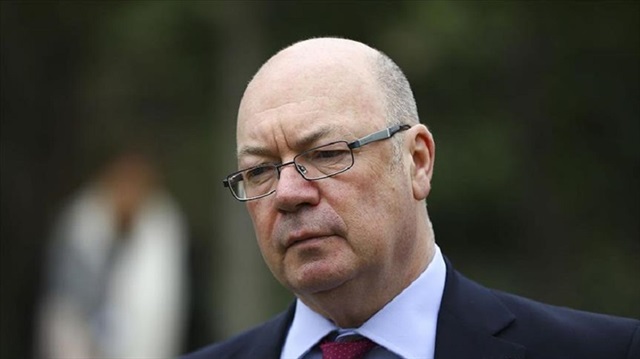
Minister Alistair Burt says rejection of Turkey's cease-fire calls by Russia and Syria is 'deeply disappointing'
The U.K. is extremely concerned of the escalating military action by Russia and the Syrian regime, putting at risk almost 3 million civilians in Idlib and its surrounding areas, the British minister of state for the Middle East said Monday.
Underlining that dozens of Russian and regime airstrikes hit three hospitals, two centers of White Helmet rescue workers and an ambulance over the weekend, Alistair Burt said: “The medical facilities and aid workers must be protected.”
Responding to a question at the House of Commons, he said the U.K. supports "the urgent diplomatic efforts being made by Turkey and the UN".
Burt said the U.K. officials have held contacts with Turkish counterparts on the continued efforts, adding that "it is deeply disappointing that Russia and Iran rejected President [Recep Tayyip] Erdogan’s calls for a renewed cease-fire" at the Tehran Summit last Friday.
“Russia and Iran also rejected similar calls from the U.K. and others at the UN Security Council on the same day,” Burt added.
“We urged them [Russia and Iran] to reconsider and instead to find a negotiated way forward to avoid an entirely man-made disaster,” Burt said.
Burt said Russia continued its military cooperation with the Assad regime despite their atrocities including the use of chemical weapons, and its blockage of an Organization for the Prohibition of Chemical Weapons mechanism to work in the country.
He highlighted that more than 3.9 civilians lived in Idlib with only a few pockets of terrorists.
At least 17 people were wounded on Monday by airstrikes carried out by regime and Russian warplanes in Idlib and Hama provinces in northern Syria.
According to White Helmets, a local civil defense agency, at least 29 civilians have been killed and dozens injured in airstrikes and attacks by regime forces and Russian warplanes in Idlib and Hama since the beginning of this month.
The Syrian regime has recently announced plans to launch a major military offensive in the area, which has long been controlled by various armed opposition groups.
The UN warned last week that such an offensive would lead to the "worst humanitarian catastrophe in the 21st century".
A trilateral summit of the presidents of Turkey, Russia and Iran last week underlined that “there could be no military solution to the Syrian conflict" and called for advancing the political process to reach a negotiated solution.




